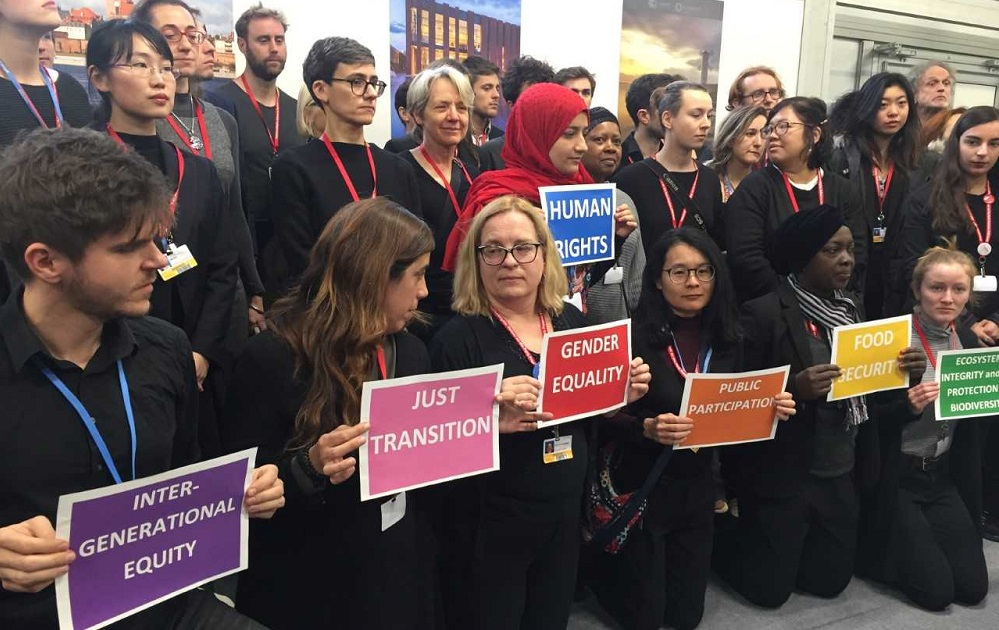Written by: Hwei Mian Lim (Senior Programme Officer at Asian-Pacific Resource and Research Centre for Women – ARROW).
At the recent 41st session of the UN Human Rights Council in Geneva, a Panel Discussion on Women’s Rights and Climate Change: Climate Action, Good Practices and Lessons Learned [1] was held on 28 June 2019. The panellists comprised Ms. Mary Robinson (Adjunct Professor of Climate Justice at Trinity College Dublin), H.E. Ms. Nazhat Sameem Khan (Ambassador and Permanent Representative of Fiji in Geneva), Ms. Nahla Haider (Member of CEDAW), and Mr Martin Oelz (Senior Specialist on Equality and Non-discrimination ILO).
Here, I would like to share some observation and insights on the panel discussion.
All the three women panelists acknowledged that women and girls are more at risk/vulnerable to climate change. Gender equality and involvement of men plus women’s active participation are crucial. For the latter, evidence have shown that women in decision-making position result in better outcomes. They also commended OHCHR for the timely “Analytical study on gender-responsive climate action for the full and effective enjoyment of the rights of women.” [2]
Achievements
Ms Robinson underscored the Lima Work Programme and women leaders stepping up. H.E. Ms. Nazhat Sameem Khan highlighted the Gender Action Plan and Ms. Haider, the 70 Concluding Observations (COBs) for countries. Both also mentioned the CEDAW General Recommendation No. 37. [3] In addition, Ms Robinson and Ms Haider commended the contribution and work of the Women and Gender Constituency (WGC) and reminded there is lots of knowledge at the grassroots.
Step it up
These eminent women called attention to matters that need to be addressed urgently. Ms Robinson raised the concern that women’s rights is increasingly under attack. Both H.E. Ms Khan and Ms Haider, cautioned that we should not be complacent with current achievements as there is more work to be done on policy coherence (e.g., linking NY, Geneva and Bonn, and linking Agenda 2030, Sendai Framework on Disaster Risk Reduction, Addis Ababa, Rio).
In terms of gender equality, H.E. Ms Khan pointed out that women being consulted in climate change policies is often tokenistic in nature and questioned whether states are preparing women for UNFCCC process? Ms Haider raised the issue of rising gender-based violence in conflict and disaster context resulting from climate change.
On climate finance, H.E. Ms Khan emphasised that climate financing must be in the context of climate justice and women must be included in the developing of policies (e.g. Green Climate Fund and Adaptation Fund). Here, I would like to highlight a poignant point from UN Women’s oral statement which stated that GCF remains elusive to women. In relation to system and structure, H.E. Ms Khan pointed out that democracy and climate change policy needs to go together, but cultural practices and norms are prevailing barriers. Ms Haider reminded that UN agencies are still working in silos, and despite having many tools questioned “What are we doing with the tools?”
Way forward
The WGC commended the OHCHR for organising its first panel discussion on women’s rights and climate change and its work in this line. However, even though ARROW is the only WGC member present and women’s organisation at the discussion, we were not able to present our oral statement, which was co-sponsored by some WGC members due to the lack of time. [4] The voice of the women needs to be heard and we want to be included and actively participate.
Lastly, Ms Robinson aspired that a Resolution will be adopted resulting from this panel, however, the only concrete outcome from this panel is the official summary by OHCHR. For the WGC, we echoed her call and look forward to a resolution on women’s rights and climate change and will actively engage with the OHCHR to achieve this goal.
[1]This is a decision from the A/HRC/RES/38/4 dated 16 July 2018 entitled “Human Rights and Climate Change.”
[2]This study is also a decision from the A/HRC/RES/38/4 dated 16 July 2018 entitled “Human Rights and Climate Change.” ARROW did a submission to this study.
[3] General Recommendation No.37 on Gender-related dimensions of disaster risk reduction in the context of climate change.
[4]Nevertheless, ARROW had submitted the oral statement and is available on HRC Extranet.
